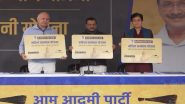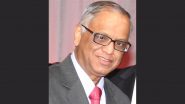La Paz, Nov 15 (AP) Bolivia's former President Evo Morales cannot run as a candidate in any new elections, the country's interim leader has said, as supporters of the ousted president demonstrated for his return from asylum in Mexico.
"Evo: Friend, the people are with you!" shouted protesters in the city of Sacaba. They had come overnight from Chapare, a coca-growing region where Morales became a prominent union leader before his rise to the presidency.
In the capital of La Paz, some gasoline stations ran out of supply because of street blockades in the nearby city of El Alto, the major distribution point for fuel.
Jeanine Anez, a Senate deputy leader who claimed the interim presidency, was struggling to establish her authority in the turbulent country. She announced that Morales, who resigned Sunday after allegations of election fraud, could not participate in elections again and also criticized Mexico's government for allowing Morales to rally support from Mexico City.
"We have to let the Mexican government know that cannot be happening," said Anez, who says she wants to restore stability in Bolivia but has been accused of a power grab by Morales supporters.
It was unclear whether election officials would have to formally bar Morales from running in a new election.
Bolivia's first indigenous president resigned on Sunday at military prompting, following massive nationwide protests over suspected vote-rigging in an October 20 election in which he claimed to have won a fourth term in office. An Organization of American States audit of the vote found widespread irregularities.
Much of the opposition to Morales sprang from his refusal to accept a referendum that would have forbidden him from running for a new term.
The pro-Morales Movement Toward Socialism party "has all the right to participate in elections, they can look for candidates,” Anez said.
Bolivia's new interim government has begun winning some international recognition but faced challenges to its legitimacy at home.
Mexico welcomed Morales this week after he resigned. Mexico's government referred to the ouster as a coup d'etat, as have other left-leaning administrations in Latin America. But Anez has gained recognition from other regional governments, including Brazil, Guatemala and Colombia, as well as the United States and United Kingdom.
Anez also announced she would recognize Venezuela's US-backed opposition leader, Juan Guaido, as that country's legitimate leader, joining the US and 50 other countries in repudiating socialist President Nicolás Maduro, an ally of Morales. But the new Bolivian leadership was focused on challenges at home.
Members of the Movement Toward Socialism party, who dominate both houses of Congress, began holding legislative sessions Wednesday aimed at questioning the legitimacy of Añez, who had been no higher than fifth in the line of succession before Morales resigned. She won recognition because those above her, all Morales backers, also announced their resignations — though some later tried to recant their resignations.
In addition to accusing Morales of inciting violent dissent, the new government also took aim at some of his allies at home.
Anez's new interior minister, Arturo Murillo, said Wednesday that he had spoken with police and ordered a hunt for his predecessor, Juan Ramón Quintana — using the Spanish word for hunt that applies to chasing an animal.
"Why is it a hunt? Because he is an animal who is killing people," Murillo said. Quintana apparently had vanished from sight.
"Those who deal in sedition, as of tomorrow, take care," he warned.
The unrest is a key part of the challenges facing Anez, a second-tier lawmaker before she thrust herself into the presidency, citing the power vacuum created by Morales' departure.
She needs to win recognition, stabilize the nation and organize new elections within 90 days, rebuilding after weeks of violent protests against Morales following the disputed election.
"If this is seen by the indigenous social movement as an effort by the old elite to restore the old order in Bolivian society, I think that is a recipe for tremendous political conflict," said Kenneth Roberts, professor of government at Cornell University in Ithaca, New York.
UN Secretary-General Antonio Guterres is sending a personal envoy to Bolivia to support efforts to find a peaceful solution to the crisis.
The new envoy, Jean Arnault, was traveling to Bolivia on Thursday, according to UN spokesman Stephane Dujarric.
Morales upended politics in this nation long ruled by light-skinned descendants of Europeans by reversing deep-rooted inequality. The economy grew strongly thanks to a boom in prices of commodities and he ushered through a new constitution that created a new Congress with seats reserved for Bolivia's smaller indigenous groups while also allowing self-rule for all indigenous communities.
Although some supporters had been disenchanted by his insistence on holding on to power, he remains popular, especially among other members of his native Aymara ethnic group. Many worry they might lose their gains, and they have been protesting reports that the multicolored Wiphala flag that represents them has been burned by people who sympathize with the opposition.
"More than 13 years of progress under Evo were lost in a minute when he resigned," said Magenta Villamil, a demonstrator.
Morales' backers, who hold a two-thirds majority in Congress, boycotted the session that Añez called Tuesday night to formalize her claim to the presidency, preventing a quorum. (AP)
(This is an unedited and auto-generated story from Syndicated News feed, LatestLY Staff may not have modified or edited the content body)













 Quickly
Quickly




















